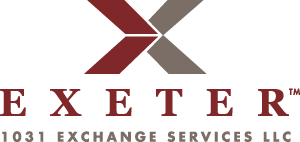1031 Exchange Fees, Costs and Charges
It can be very frustrating and confusing when you try to evaluate 1031 Exchange fees, costs and services charges assessed by Qualified Intermediaries (Accommodators). The 1031 Exchange industry does not do an adequate job of explaining the various fees, costs and services charges involved in the administration of 1031 Exchange transactions.
This article will help you determine what practices are considered to be industry standard and what practices are not; to identify what practices are acceptable and reasonable and what practices are not. It will help you analyze 1031 Exchange fee schedules to make sure that you are comparing apples to apples.
Keep in mind that fees are not based just on the amount of work performed by the Qualified Intermediary but also on the amount of risk exposure. The Qualified Intermediary must ensure they are compensated fairly based upon the amount of risk exposure, especially in large Forward 1031 Exchanges and in the more complicated Reverse 1031 Exchanges and Build-To-Suit 1031 Exchanges.
When comparing 1031 Exchange fees and costs charged by the various Qualified Intermediaries (Accommodators), you should fully analyze and consider factors such as:
- Set-up and/or administrative fees
- Per property charges
- Interest income paid to you (the investor/exchangor)
- Interest income retained by the Qualified Intermediary
- Transactional or service fees (wire transfers fees, check disbursement fees, etc.)
- Fees or service charges for Qualified Trust Accounts. The fee should include the costs of a Qualified Trust Account.
It is easy for a Qualified Intermediary to structure its fees and costs to appear to be less expensive than its institutional competitors, but when you factor all of the above fees, costs and charges into the equation, especially the amount of interest retained by the Qualified Intermediary, you will able to compare each fee schedule side-by-side to determine which is the best value for your particular situation.
Set-up, Administrative Fees and Per Property Costs
Institutional Qualified Intermediaries, like Exeter 1031 Exchange Services, LLC, typically charge a set-up or administrative fee in the range of $850.00 to $1,200.00 for each 1031 Exchange transaction. This fee usually includes one sale property ("relinquished property") and one purchase property ("replacement property"). You would also generally pay an additional property administration fee of about $300.00 to $400.00 for each additional property processed in the tax-deferred exchange.
Non-institutional Qualified Intermediaries typically charge lower set-up or administrative fees between $600.00 and $800.00, which appears to be less expensive than the institutional Qualified Intermediaries. You need to consider all of the other costs and charges in order to truly compare 1031 Exchange service providers as well as the financial stability of the organization.
Interest Income Earned on 1031 Exchange Funds
Set-up and administrative fees typically only make up about one-third of a Qualified Intermediary's tax-deferred exchange revenue. The majority of their 1031 Exchange revenue, or about two-thirds, is comprised of interest income earned and retained on the 1031 Exchange funds. Qualified Intermediaries will retain or share all or a portion of the interest income earned on your tax-deferred exchange funds while they are on deposit or held by the Qualified Intermediary.
This fee structure is actually a very fair and efficient way to compensate your Qualified Intermediary for the tax-deferred exchange services performed on your behalf. The larger the tax-deferred exchange transaction is the more risk your Qualified Intermediary is exposed to, and conversely the amount of interest income retained by your Qualified Intermediary increases in direct relationship to the size of the transaction.
You do need to evaluate the amount that will be retained by the Qualified Intermediary and the amount that will be paid to you in order to clearly understand the total amount of fees you are paying to your Qualified Intermediary, otherwise you will not be comparing apples to apples.
Transactional and/or Service Fees
The majority of the Qualified Intermediary's fee structures only include a set-up fee and a percent of the interest income. There are special charges for more complicated transactional structures, including seller carry-back financing.
A few smaller Qualified Intermediaries may charge various transactional fees such as wire transfer fees, overnight delivery or courier charges, facsimile costs, etc. It is important to know and understand the total fee structure before making a final selection of your Qualified Intermediary.
